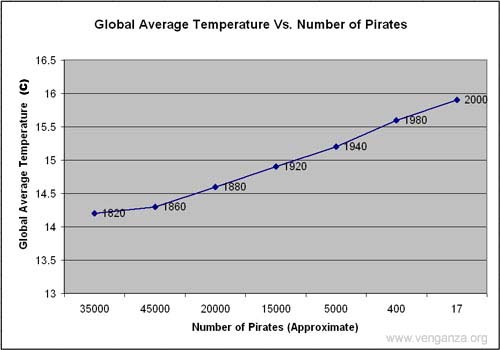correlation vs causation

chrisdavey
Posts: 9,834 Member
http://www.soheeleefitness.com/2012/02/29/correlation-vs-causation/
"Don't forget to eat you're protein & lift heavy *kitten*"
GOLD :happy:
"Don't forget to eat you're protein & lift heavy *kitten*"
GOLD :happy:
0
Replies
-

 0
0 -
The Correlation vs Causation issue is exactly why we should treat fitness like religion: accept other people's beliefs and don't hold on to your own beliefs when proper research proves you wrong.0
-
Thanks for posting this link.0
-
My name is Joe, and I support the link in the OP's post. Good stuff Chris.0
-
Taso: GOLD!
PU: agreed. But if N=1 & you haven't confirmed that ALL other aspects of your life are the same (which is pretty much impossible for anyone in everyday life IMO) then you can't claim that the run is the single contributing factor to weight loss.0 -
Phew, I'm glad this was you that posted this Chris. For a second there I thought it was my old Psych research lecturer come back to haunt me!

It's a bit cold here today, I was going to put a jacket on... but now I know I should just hunt and kill a pirate, that'll be much more effective!! :bigsmile:0 -
As a teacher of philosophy and logic, I just have to say that I
 this! 0
this! 0 -
It's a bit cold here today, I was going to put a jacket on... but now I know I should just hunt and kill a pirate, that'll be much more effective!! :bigsmile:
What's wrong with pirates? :frown:0 -
Thanks for sharing!0
-
Overall that was a pretty good page, it gets the gist of things right. I would quibble a little about what exactly is necessary to establish causation statistically--you don't absolutely need to be able to control every possible difference, the big thing is just random assignments to conditions so that the counter-factual works, and reasonable controls for other important variables--but this is just me being persnickety. Also, I would say, given the difficulty in using humans in properly controlled experiments for things like diet and exercise programs, I am willing to accept well replicated correlational studies with reasonably good explanations and possibly animal studies. For example, studies linking smoking and cardiovascular problems in humans are entirely correlational, but I still don't think smoking is safe.0
-


There's a correlation between the number of pirates and global warming; causation is established when we determine that the pirates eat an extremely high fibre diet resulting in frequent emissions of methane - a known greenhouse gas.0 -
As a behaviorist who works with teaching people the difference between these 2 things, I give this article a straught up standing O! :drinker:0
-
Don't forget to eat you are protein and lift heavy ****
I am protein? Nah, I'm just drunk 0
0 -
Overall that was a pretty good page, it gets the gist of things right. I would quibble a little about what exactly is necessary to establish causation statistically--you don't absolutely need to be able to control every possible difference, the big thing is just random assignments to conditions so that the counter-factual works, and reasonable controls for other important variables--but this is just me being persnickety. Also, I would say, given the difficulty in using humans in properly controlled experiments for things like diet and exercise programs, I am willing to accept well replicated correlational studies with reasonably good explanations and possibly animal studies. For example, studies linking smoking and cardiovascular problems in humans are entirely correlational, but I still don't think smoking is safe.
But the variables all need to remain exactly the same except the one you are manipulating specifically...
I agree that when you use humans, it is near impossible to keep all of the variables fixed....0 -
Overall that was a pretty good page, it gets the gist of things right. I would quibble a little about what exactly is necessary to establish causation statistically--you don't absolutely need to be able to control every possible difference, the big thing is just random assignments to conditions so that the counter-factual works, and reasonable controls for other important variables--but this is just me being persnickety. Also, I would say, given the difficulty in using humans in properly controlled experiments for things like diet and exercise programs, I am willing to accept well replicated correlational studies with reasonably good explanations and possibly animal studies. For example, studies linking smoking and cardiovascular problems in humans are entirely correlational, but I still don't think smoking is safe.
But the variables all need to remain exactly the same except the one you are manipulating specifically...
I agree that when you use humans, it is near impossible to keep all of the variables fixed....
In true experiments, you don't keep things exactly the same (sometimes the things you're studying, e.g. plants, don't even exist before you start), you randomly assign cases to conditions, the idea being that cases have a set (typically equal) probability of ending up in either condition so there should be no systematic differences between the groups (sometimes tests are used to determine whether there are differences between the groups on some set of observables). Based on that, you assume that any differences between the groups post-treatment is due to the treatment. There is a whole field of experimental design, with more complex methods of setting up experiments, but the basic logic remains the same. And a whole field of causal inference. But you probably don't want to visit either.0
This discussion has been closed.
Categories
- All Categories
- 1.4M Health, Wellness and Goals
- 398.5K Introduce Yourself
- 44.7K Getting Started
- 261K Health and Weight Loss
- 176.4K Food and Nutrition
- 47.7K Recipes
- 233K Fitness and Exercise
- 462 Sleep, Mindfulness and Overall Wellness
- 6.5K Goal: Maintaining Weight
- 8.7K Goal: Gaining Weight and Body Building
- 153.5K Motivation and Support
- 8.4K Challenges
- 1.4K Debate Club
- 96.5K Chit-Chat
- 2.6K Fun and Games
- 4.8K MyFitnessPal Information
- 18 News and Announcements
- 21 MyFitnessPal Academy
- 1.5K Feature Suggestions and Ideas
- 3.2K MyFitnessPal Tech Support Questions









